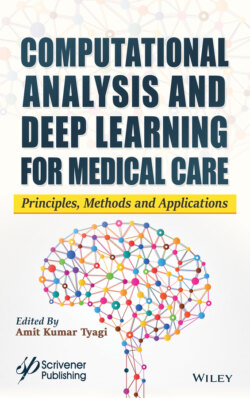Читать книгу Computational Analysis and Deep Learning for Medical Care - Группа авторов - Страница 32
2.2 Related Work
ОглавлениеInformational retrieval is started from the creation of the HTML pages in the year 1945, organizing the documents a proper order and retrieve them. After the invention of the internet and the servers, it is a prominent problem for everyone. At the early age of the computers and internet, it is not a tough problem. In the early 90s, the exponential growth of the servers and connected devices to the internet has started the actual problem of referencing each other. The introduction of the HTTP and FTP creates more number of pages and stored on the internet. Along with the rapid developments of these technologies, information retrieval has become the crucial one. Gerard Salton [27] has started in this direction of the research, and we call him as the father of search engines. Their team started the work Automatic Retriever of Text, vector space model, Inverse Document Frequency (IDF), and Term Frequency (TF). The first search engine created was Archie, created in 1990 by Alan Emtage [28]. Search engine functionality depends on different aspects. Majorly, it consists of three main parts:
1 Spiders
2 Index
3 Search interface and relevancy software
The indexed data will be used for retrieving the information. It consists of different approaches, like ranking and string matching. The proximity measures are used in the literature for retrieving the documents but the retrieval in these cases has become a crucial aspect. The distance is like matching the keyword only. We need to consider the conditional probability of the keyword weather how accurately it is mapping to the given document. It will increase the proximity of the documents. Spatial objects also include spatial data along with longitude and latitude of the location. Many functionalities of a spatial database are helpful in distinct ways in specific contexts.
According to a study, nearly 75% of people are not satisfied with the information which they are suggested, that is not specific to them i.e., that is not personalized and not localized. The importance of AI perspective in this context can be explained with the help of an example. Let us say, a college student bought a laptop from an e-commerce website. Later, he wants to buy the add-ons for a laptop like a laptop cover, etc. Right now, it would be simply awesome if our website or search engine ranks up the suggestions of laptop cover and other laptop accessories when the user just types laptop in the search rather than showing pages related to just laptops. The recommendation system is working on this principle in e-commerce sites.
Stages in information retrieval:
1 Finding documents
2 Formulating queries
3 Determining relevance
4 Rank the Pages
Types of search engines:
1 Crawler-Based search engines
2 Directories
3 Hybrid search engines
4 Meta-search engines
As of now, every second Google search engine receives 60,000 queries and 5 billion for a day [26]. From theses, nearly 3 billion queries are from location-oriented devices. With the increased usage of pervasive computing, the location of the device is crucial while suggesting a query [13]. Earlier, the search engines used the query log for suggesting the query. But, now, the location has become an important aspect of the query suggestion. The historical choices of the registered user’s content which is used for query in the search engines will be used for the clustering process [21, 22]. The different techniques used for search engines are shown in Table 2.1. If the related queries are not present in the query log, then employ the location-aware keyword query suggestion (LKS). Once the user prefers the location, the search engine has to optimize the query to that specific location. The LKS will provide the related information to the user based on the location and queried data.
Table 2.1 History of search engines.
| Search Engines | Method | Year |
| Query logs | 2000–2010 | |
| Query session data [3] | 2010–2012 | |
| Query topic models | 2013 | |
| Semantic relevance of the keyword query | 2008–2012 | |
| Location-aware keyword, user preferences | 2012–till data |
Especially while looking for a query which has significance in location like Taj mahal, Charminar, etc., will be the iconic locations. In such cases, query suggestion framework must be given the weight to the specific location with the spatial distances of the retrieved documents.
